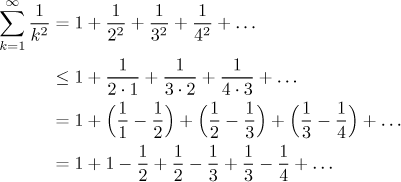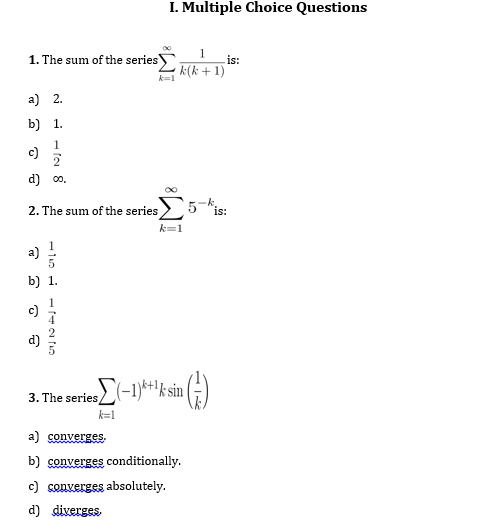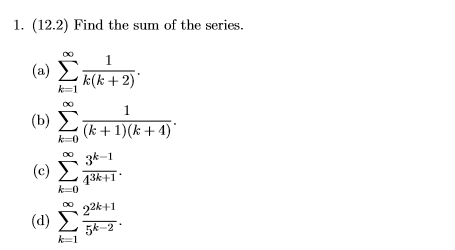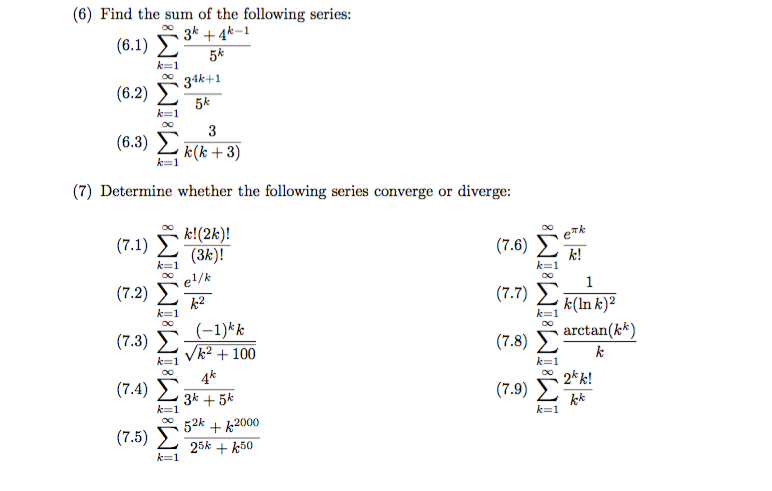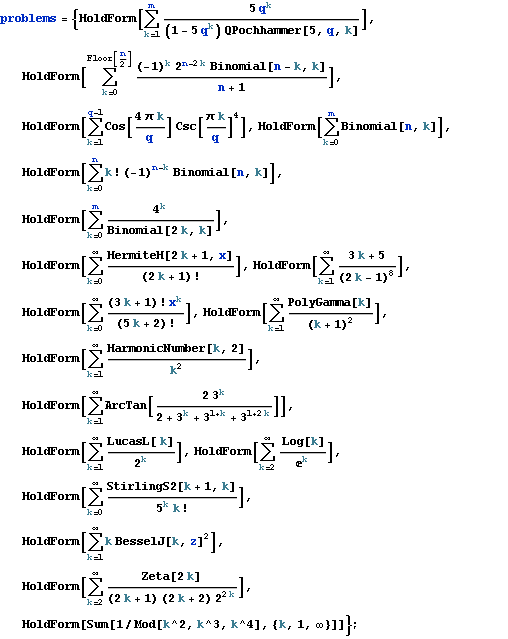The sum Σ k 1/2^k k ∈[k = 1, 20] is equal to - Sarthaks eConnect | Largest Online Education Community
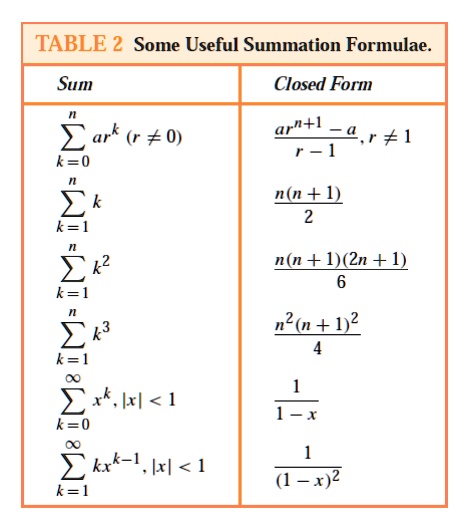
SOLVED: TABLE 2 Some Useful Summation Formulae: Sum Closed Form 2 0k (r #0) K=0 2 k2 E k3 xk xl < 1 2 kxk-1 Ixl < 1 4"+l 74,r#1 r -1 "n+) n(n + 1)(2n + 1) "6+42

Evaluate the series $S_n = \sum_{k=1}^n\log\frac {k (k + 2)}{(k + 1)^2}$ - Mathematics Stack Exchange

calculus - First four terms of $ \sum_{k=1}^\infty \frac{(-1)^{k+1(2^k)}}{(2k - 1)!} $ - Mathematics Stack Exchange

calculus - Question regarding the derivation of textbook example sum of $k^2$ - Mathematics Stack Exchange

Let Sk, k=1,2, …,100, denote the of the infinite geometric series whose first term is k−1k! and the common ratio is 1k.Then, the value of 1002100!+100∑k=2|(k2−3k+1)Sk| is :
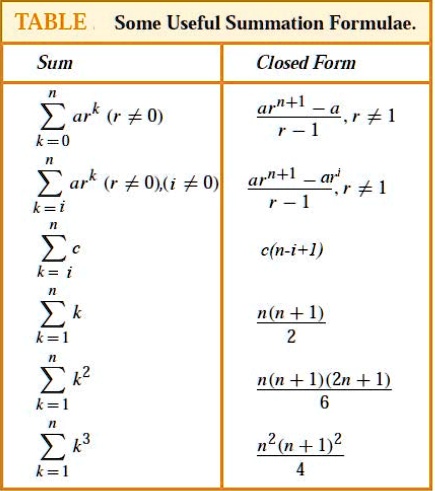
SOLVED: TABLE: Some Useful Summation Formulae. Sum Closed Form Σ (r + 0) 4r"+l r -1 Σr#1 k=0 Σ (r - 0)(i - 0) Σr"+[ a,r -1 r -1 Σ c(n-i+1) "u+)

